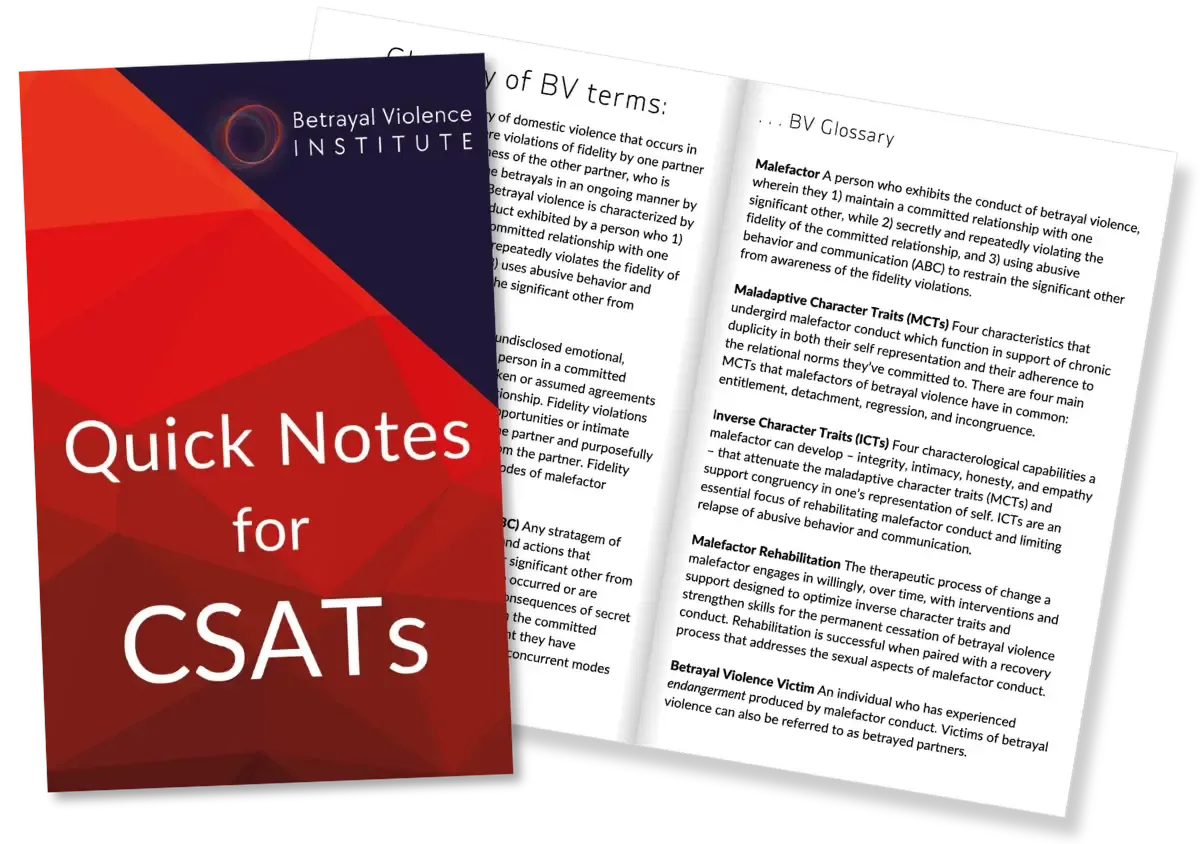It's #timetodefine this conduct of infidelity.
BETRAYAL VIOLENCE WORKSHOP
FOR MENTAL HEALTH CLINICIANS
Discover the new language of intimate partner infidelity.

Workshop Hosted by Betrayal Violence Institute & Hope Ray
Betrayal Violence Institute is an interdisciplinary network dedicated to the study of betrayal violence (BV). Our mission is to provide research and terminology that supports global recognition of BV amongst mental health, medical, and legal professionals as well as faith-based and community organizations.
WHAT IS BETRAYAL VIOLENCE?
Betrayal violence (BV) occurs in committed relationships where violations of fidelity by one partner take place outside the awareness of the other partner, who is deliberately deceived about the betrayals in an ongoing manner by the use of power and control.
BV is characterized by three concurrent modes of conduct exhibited by a person who 1) maintains a committed relationship with one significant other, 2) secretly and repeatedly violates the fidelity of the committed relationship, and 3) uses abusive behavior and communication (ABC) to restrain the significant other from awareness of the violations.
Choose the Best Format for Your Organizational Needs
These workshops can be either a virtual or in-person conference.
The Workshop Basics
CE’s: Hope Ray participates with CE providers. Please email the requirements to [email protected].
Presenter: Hope Ray, Founder of BVI, provides these workshops as virtual conferences or in-person. For travel outside the Metro-Detroit area please contact [email protected] to arrange travel and lodging.
Workshop Format: PowerPoint presentation, printed 10-page booklet handout for attendees, Q&A at specific times throughout the presentation. Recording is not allowed.
In-person presentation set up requirements:
- Accurate headcount of attendees 7 days before presentation
- Projector and screen, including necessary hook ups to Mac computer
- Microphone for large groups (floating mic for Q&A)

Virtual set up requirements:
- Hosted in password-protected Zoom room with a designated co-host from the organization to introduce speaker, collect questions, and monitor attendance
- A complete list of confirmed attendees names and emails is required 7 days prior to the workshop.
1.5-Hour Training with Hope Ray, LPC CSAT CHFP CCPS
A clinical briefing on betrayal violence (BV) and complex partner trauma (CPT)
This workshop includes:
- Research that supports a thorough and response-based definition of violence
- Examination of the non-pathologizing approach to understand secret infidelity conduct and the power-and-control dynamic that emerges as a result, along with the detrimental effects on the partner
- Identification of deception, persuasion and exploitation versus equity
- Exploration of the four phases of complex partner trauma (CPT): endangerment, endangerment awareness, reality collapse, and reality acclimation
- Comparison charts of the use of power and control within intimate partner violence (IPV) in contrast with betrayal violence
- New terminology to facilitate updated understanding of common but nuanced concepts such as: gaslighting, betrayal trauma, betrayal blindness, trauma bonding, reactive abuse, sex addiction

Handouts:
- Printed booklet: Quick Notes for Clinicians - This 10-page booklet includes definitions, charts, and important framework for working with clients impacted by betrayal violence.
- Copies of Complex Partner Trauma Magazine will be available for purchase (in-person only).
Half-Day Training with Hope Ray, LPC CSAT CHFP CCPS
An in-depth look at what is working - and what isn’t - in mental health regarding infidelity betrayal; generating a fresh articulation of the problems clients face in betrayal violence
“Lunch and learn” style is encouraged and breaks can be arranged accordingly. Typical format is as follows: two 1.25-hour sessions with a 10-minute break after the first session and lunch following the second; one 1.5-hour session for extended Q&A, breakout groups, or case consultation.
If 70% of your organization’s clinical team successfully completes the training, your organization becomes eligible to be endorsed as a BV-Informed Organization (BVIO) on our website which includes access to our affiliate program. Your organization can opt out at any time; renewal occurs after four years with updated training - no membership fees.
This workshop includes:
- An intersectional hypothesis of betrayal violence and complex partner trauma including prevalence indicators, symptom development, and diagnostic features
- Non-pathologizing examination of abusive behavior and communication (ABC) used to avoid consequences of one’s own fidelity violating behavior
- Introduction to the Over-Under Nurturance model of characterological trait development and stability versus actualization potential of these traits
- Overview of D.I.R.E. and the skill-based way to help clients inverse maladaptive character traits (MCTs) that undergird deception, persuasion, and exploitation
- Comparison of possible co-occurring factors such as coercive control, intimate partner violence (IPV), narcissistic abuse
- Analysis of what constitutes “fidelity violations” for different individuals through the lens of concepts such as continuum of perceived threat and stay shaming
- Attachment-based, trauma-informed overview of the partner-adaptive bonding cycle (P-ABC) and the four phases of complex partner trauma (CPT) and identification of the types of “reflexive calibration” that helps partners heal
- Guidelines for early detection of BV conduct within a client’s environment
- Discourse of helpful versus harmful clinical interventions for CPT and BV
- Attention to common barriers that betrayed partners face and societal norms that perpetuate these barriers and normalize betrayal violence
- Response-based and trauma-informed ways to support couples and individuals who have been impacted by betrayal violence
- Focus on healthy trust-rebuilding processes for couples and individuals after betrayal
- Overview of interventions that increase probability of healthy outcomes for relationships and individuals after betrayal violence and complex partner trauma
- Analysis of different “umbrella” terms for abuse and trauma such as betrayal trauma, domestic violence, sex addiction, etc.
- Areas for further research

Handouts:
- Printed booklet: Quick Notes for Clinicians - This 10-page booklet includes definitions, charts, and important framework for working with clients impacted by betrayal violence.
- Copies of Complex Partner Trauma Magazine will be available for purchase (in-person only).
INTERESTED IN BETRAYAL VIOLENCE TRAINING FOR YOUR ORGANIZATION?
Complete this form and receive more information from our team soon.
